As the sun sets on another day, the courts of communities across the globe light up with the energy of pickleball players.
This rapidly expanding sport combines elements of tennis, badminton, and table tennis, offering a unique blend of strategy, skill, and, of course, a little bit of luck.
Among the flurry of volleys, dinks, and serves, one rule often emerges as a point of contention and curiosity alike: the double hit.
So, can you double hit in pickleball?
Honestly, understanding this nuanced regulation can elevate your gameplay and ensure that your matches are both fair and fiercely competitive.
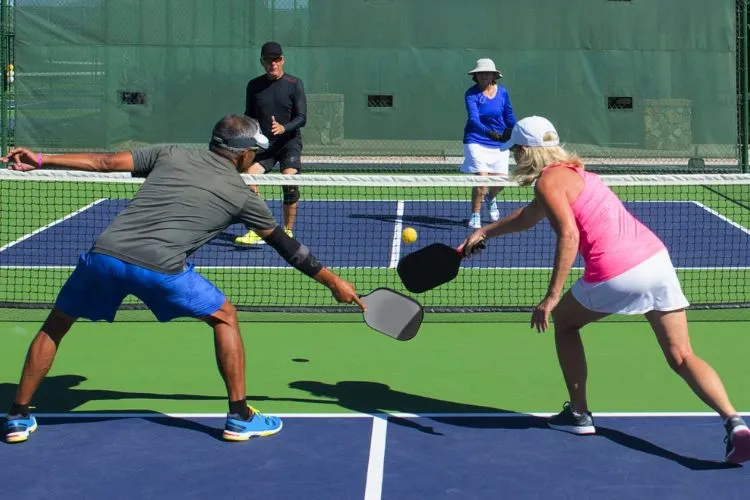
What is a Double Hit?
At its core, a double hit in pickleball occurs when the ball contacts a player’s paddle or any part of their body more than once in a single stroke.
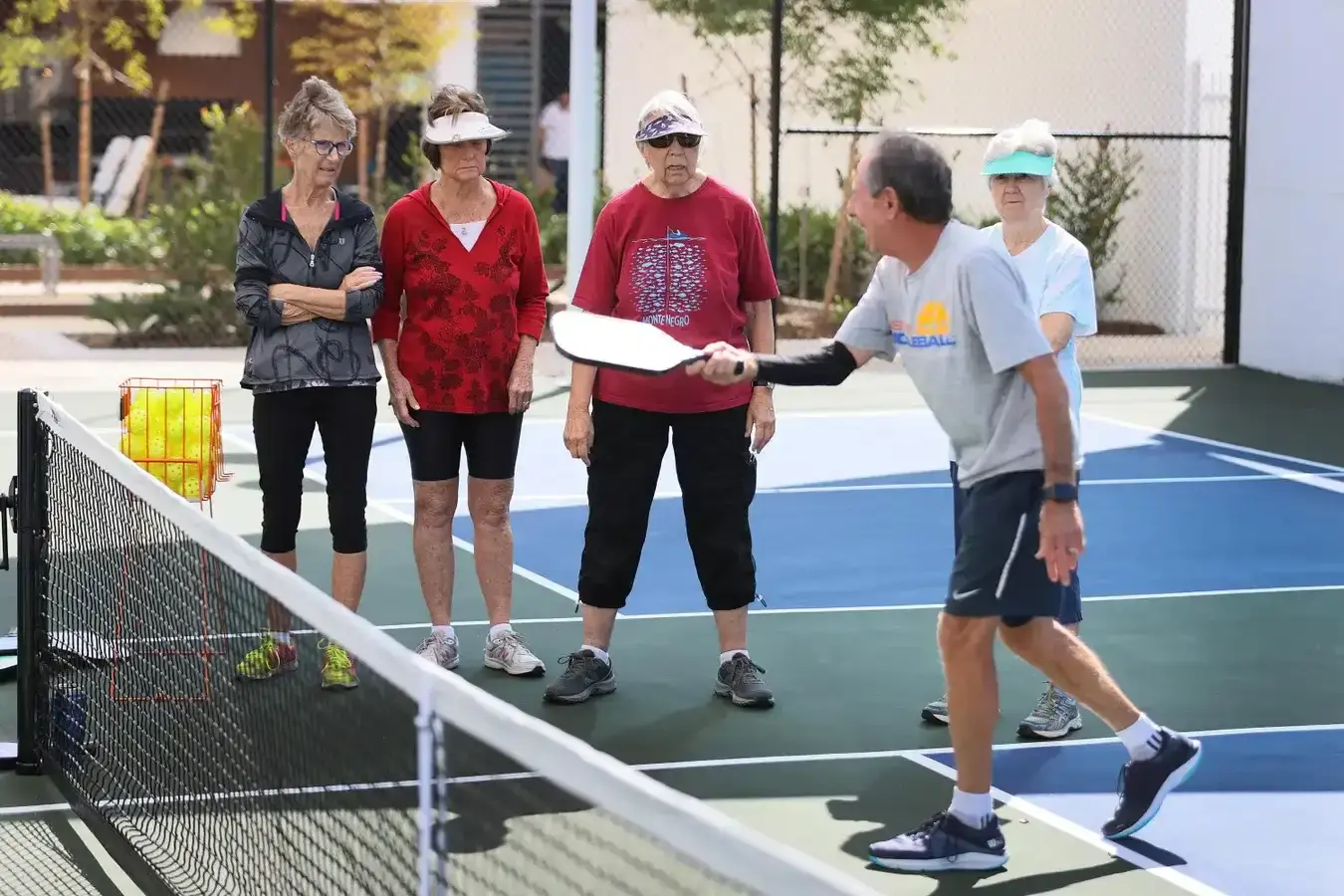
Unlike tennis or badminton, where a double contact is usually a fault, pickleball’s approach adds a layer of complexity and understanding to the game. This subtle yet significant distinction underlines the sport’s unique character and strategic depth.
The Rulebook on Double Hits
The official rule concerning double hits can be found nestled within the broader pickleball regulations, stipulating that a double contact is allowed under three key conditions: it must be unintentional, part of a single continuous stroke, and the ball must travel in the same direction.
This triad of criteria helps maintain the game’s flow while preventing players from exploiting the rule for an unfair advantage.
Can You Double Hit In Pickleball?
Distinguishing between a legal double hit and an illegal carry or fault is paramount.
A legal double hit slips by almost imperceptibly, with the ball continuing on its intended trajectory as if kissed twice by the same gust of wind.
In contrast, carries or prolonged contacts disrupt the game’s rhythm, bending the rules to the point of breaking. It’s a fine line, defined by the intention and fluidity of the action rather than the outcome alone.
Common Scenarios Where Double Hits Occur
Picture this: a high lob sends you scrambling back, eyes skyward, paddle poised. In the heat of the moment, your swing connects with the ball, which, seemingly begrudgingly, taps your paddle a second time before sailing over the net.
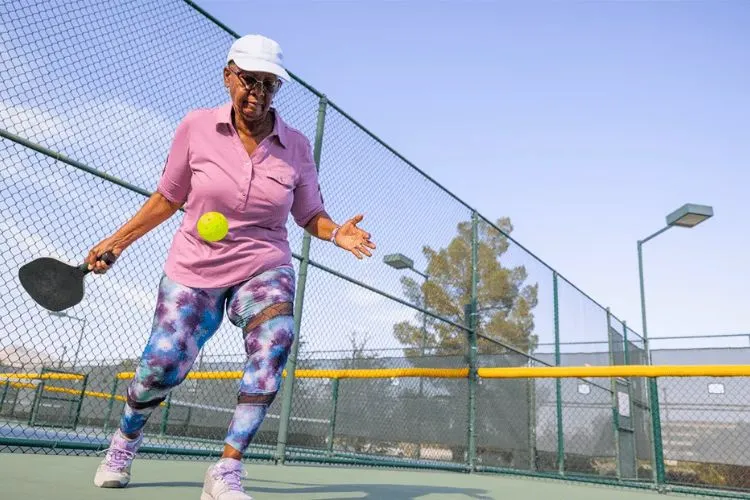
This scenario, among others like the frantic defense of a powerful drive or the awkward reach for a drop shot, often leads to double hits. Recognizing and reacting correctly in these instances separates knowledgeable players from true masters of the court.
Officials’ Role in Double Hits
In official gameplay, the referee’s keen eye and understanding of the rule are the linchpins in determining the legality of a double hit. Their judgment relies not on the sound or speed of the stroke but on the observation of a continuous, seamless motion.
This discretion ensures the game remains fair, with players and spectators alike trusting in the officials’ expertise and impartiality.
How to Avoid Common Mistakes with Double Hits?
The first step to navigating the murky waters of double hits is awareness. Recognize that in the frenzy of play, these occurrences are not just possible; they’re probable. Practice focused drills aimed at refining your stroke, emphasizing smoothness and control over sheer power.
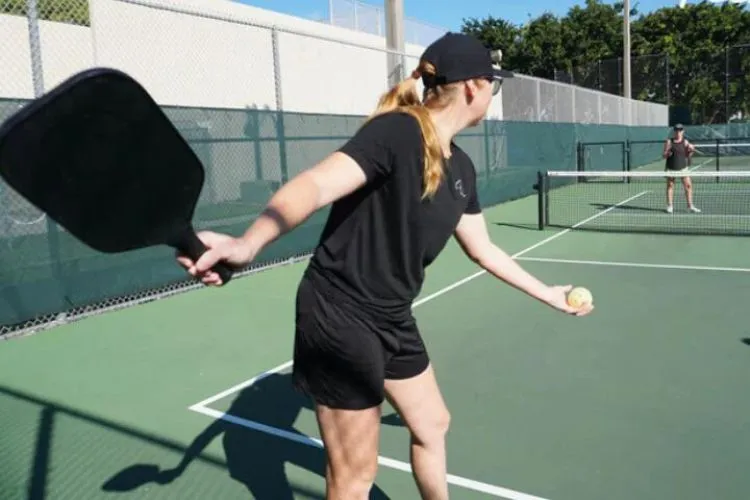
Additionally, familiarizing yourself with the rulebook can demystify these moments, transforming what was once a potential point of confusion into an aspect of the game you navigate with confidence.
Tactical Adjustments and Mentality Shifts
Adopting a mindset of anticipation and flexibility in pickleball transcends the mere mechanics of the game; it delves into the strategic psyche integral to mastering its flow and complexity.
Seasoned professionals often highlight that the ability to predict an opponent’s next move and to remain adaptable in one’s responses is crucial.
This is not just about reacting in real-time but about developing a proactive gameplay strategy that anticipates multiple outcomes from each volley.
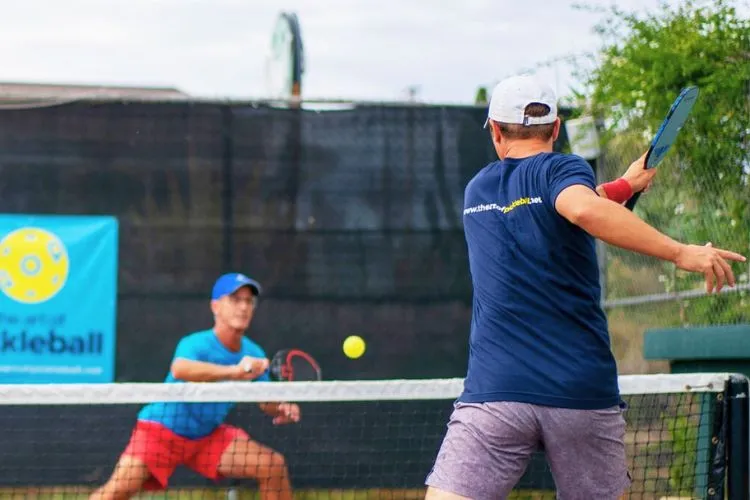
Such a mindset significantly reduces the likelihood of committing faults, especially those related to double hits, which can occur during moments of poor judgment or rigidity in play.
Flexibility, both physical and mental, is at the core of this approach. Physically, it involves refining one’s technical skills to execute a wide range of shots with precision and control. This could mean adjusting the grip, stance, or swing mid-game to better respond to the ball’s trajectory.
Mentally, it requires players to stay open and adaptable, able to pivot their strategy based on the game’s evolving dynamics.
Anticipation is closely knit with this flexibility, as it empowers players to foresee potential plays, thereby preempting situations that could lead to fouls like double hits.
Moreover, this mindset encourages a deeper understanding of the game’s rules and an appreciation for its subtleties. Knowing that double hits are permissible under specific circumstances allows players to use them to their advantage when executed correctly, turning what could have been a fault into a strategic play.
In embracing anticipation and flexibility, players not only adhere to the sport’s legal framework but also enhance their overall game experience. It prepares them for the unpredictable nature of competitive play, making pickleball a dynamic and endlessly engaging sport.
Ultimately, the tactical adjustments and mentality shifts towards anticipation and flexibility not only mitigate faults but enrich the player’s journey in mastering pickleball.
Pro Tips
Delving into the wisdom of seasoned pros reveals a treasure trove of insights. Many advocate for a relaxed grip and a flexible wrist, allowing the paddle to absorb and redirect the ball’s energy efficiently.
This adaptability not only reduces the likelihood of unintentional double hits but also enhances your overall control and precision, making every stroke count.
Frequently Asked Questions (FAQs)
u003cstrongu003eCan you intentionally hit the ball twice in pickleball?u003c/strongu003e
Absolutely not. Intentional double hits are considered faults and are directly opposed to the spirit of fair play that pickleball promotes.
Is there a penalty for a double hit in tournaments?
If a double hit is deemed illegal, it results in a lost point or a side out, depending on the serving team. Legal double hits, in accordance with the rulebook, carry no penalty.
How do double hits affect scoring?
Legal double hits do not affect scoring and play continues as normal. However, an illegal double hit, like any fault in pickleball, will influence the game’s flow and potentially its outcome, emphasizing the importance of mastering the game’s nuances.
Conclusion:
The intriguing world of pickleball is full of surprises, with the rule on double hits serving as a prime example of the game’s depth.
By embracing this challenge, players of all levels can discover not just the boundaries of the rulebook but also the limits of their own skills and strategic acumen.
So, the next time you step onto the court, remember that understanding and leveraging the double hit rule can turn what might seem like a minor detail into a significant advantage.
Keep practicing, stay informed, and most importantly, enjoy every moment of your pickleball journey.
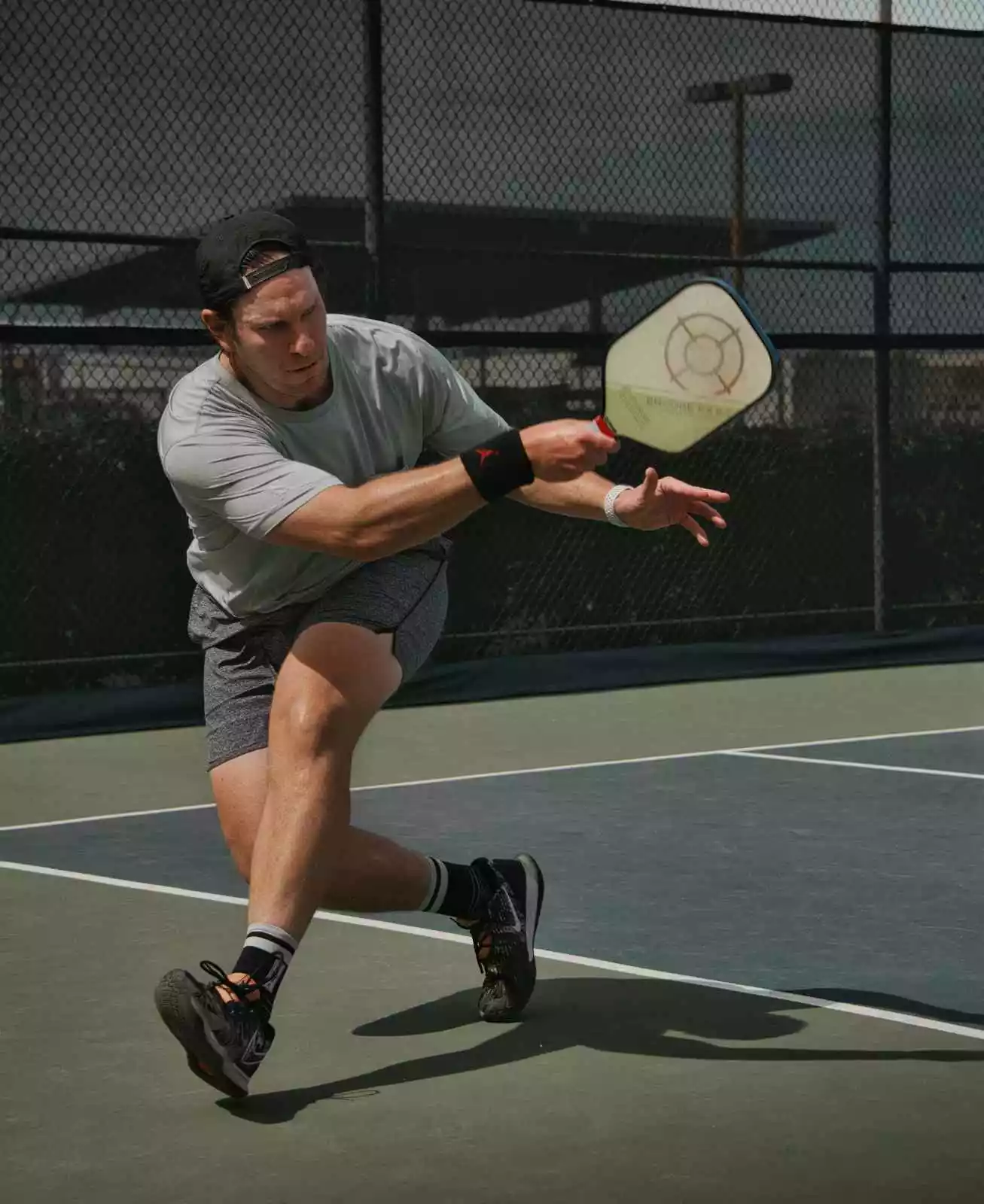
Pickleball’s more than a game to me—it’s a passion. I write, sharing its highs and lows, the thrills and the lessons. Some tales might draw you to the court, while others give a hint of the game’s magic. So, curious about my journey? Ready to dive deep into the world of pickleball with me? Let’s go.
